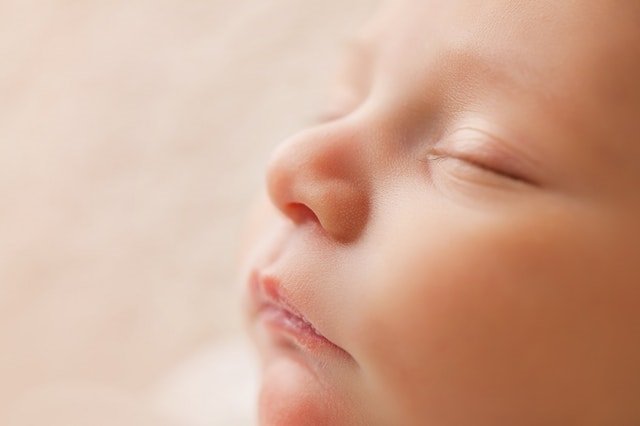
In a recent study, researchers from Brock University find that adults think the faces of babies most appealing at around the six-month mark.
This means parents who aren’t feeling that magical bond with their newborn babies need not to be panic.
Babies, whether they are human or animal, possess certain physical traits that adults consider to be “cute.”
In human babies, these could include big eyes, chubby cheeks, broad smiles and cooing noises.
Research in the 1940s theorized that a baby’s cuteness brings out nurturing and caretaking behavior in adults, which ensures infant survival.
If this is the case, newborn babies should be the cutest of all, as they’re the most vulnerable and they need the most protection and care.
In the study, the researchers showed 142 adults photos of 18 babies taken shortly after birth, at three months old and at six months old.
The team asked participants how willing they would be to adopt the babies based on their perceptions of the children’s cuteness, happiness, health and self-resemblance.
They found that adults rated the newborns as the least attractive and the six-month old had the highest ratings across all of the facial cue.
Initially, the team was puzzled by their finding that adults’ perception of cuteness intensifies six months or so after the babies are born.
But then, they read the medical literature, and found it was almost universal in that six-month old babies are better at surviving illnesses than younger babies.
The researchers suggest that the finding was interesting because usually people think that the younger children are, the cuter they are.
They want to let parents know that if they’re not instantly grabbed by this baby as much as they thought they might be, then that’s normal. The bonding will build and grow over time.
The delay in cuteness perception is an adult-driven adaptation that may be a leftover from evolutionary times when resources were scarce and infant diseases were deadly.
The team finds two other possible factors for the delay in baby-parent bonding: that it can take up to a month for babies to develop the ability to consciously smile out of happiness;
and that fathers who are actively involved with their babies tend to notice that their months-old offspring look like them, which increases the fathers’ bonding.
The research team suggests parents and society to come up with ways of bonding with newborns.
This includes infant massage, spending lots of time with the baby and skin-to-skin contact.
New parents should get support materially and psychologically as much as possible.
Tony Volk, Child and Youth Studies Associate Professor, is one study researcher.
Graduate student Prarthana Franklin and undergraduate student Irisa Wong are also in the study. Franklin is the lead author of the study.
The study is published in Evolution and Human Behavior.
Source: Brock University.
Copyright © 2018 Knowridge Science Report. All rights reserved.



